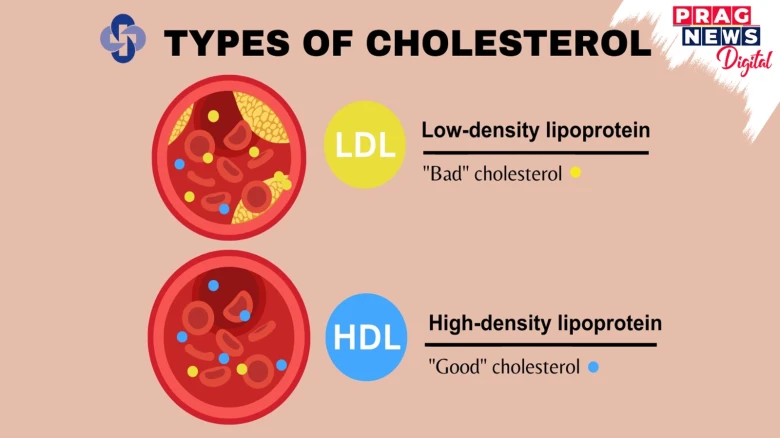Sports

There are two types of cholesterol: Low-Density Lipoprotein (LDL) and High-Density Lipoprotein (HDL)…
Digital Desk: Cholesterol can dissolve in all body fluids and it is a substance, that is fat-like and is found in every cell of the body Moreover, it is required for the manufacture of hormones, synthesis of vitamin D, and the production of some special substances that help in the digestion of food. Cholesterol is an essential part of the body's functions, however, when it is in large concentrations in our system it has adverse effects on your body.
There are two types of cholesterol:
Low-Density Lipoprotein (LDL) and High Density Lipoprotein (HDL). Low-Density Lipoprotein (LDL) and High-Density Lipoprotein (HDL). The LDL cholesterol is commonly described as bad cholesterol because it can deposit on the arterial walls thereby scaling the surface with protein. It can cause the blood vessels to narrow and consequently lead to heart disease, heart attack, or stroke. In contrast, high-density lipoprotein or HDL is referred to as ‘good cholesterol’ because it picks up cholesterol from body cells and takes it back to the liver where it is metabolized and expelled out of the body.
Several conditions and lifestyles contribute to the causes of high cholesterol. These include poor diet, high saturated and Trans fats, stress and no exercise, obesity, being a smoker, and heredity. Further, high cholesterol is life-threatening for diabetic people, with blood pressure above 140/90, or persons over 40 years of age.
Controlling cholesterol is crucial and it can be attained through certain life changes. The incorporation of fruits, vegetables, and grains in the diet decreases LDL levels while lean proteins also decrease the LDL, and involvement in physical activity increases HDL. Lowering alcoholic intake and avoiding smoking also assist in enhancing cholesterol levels. At other times, medicine may be required in an effort to control cholesterol levels excellently.
Getting medical check-ups and monitoring cholesterol levels is important since high cholesterol is usually asymptomatic, yet very dangerous to a person’s cardiovascular health, if not diagnosed and kept under control.
Leave A Comment